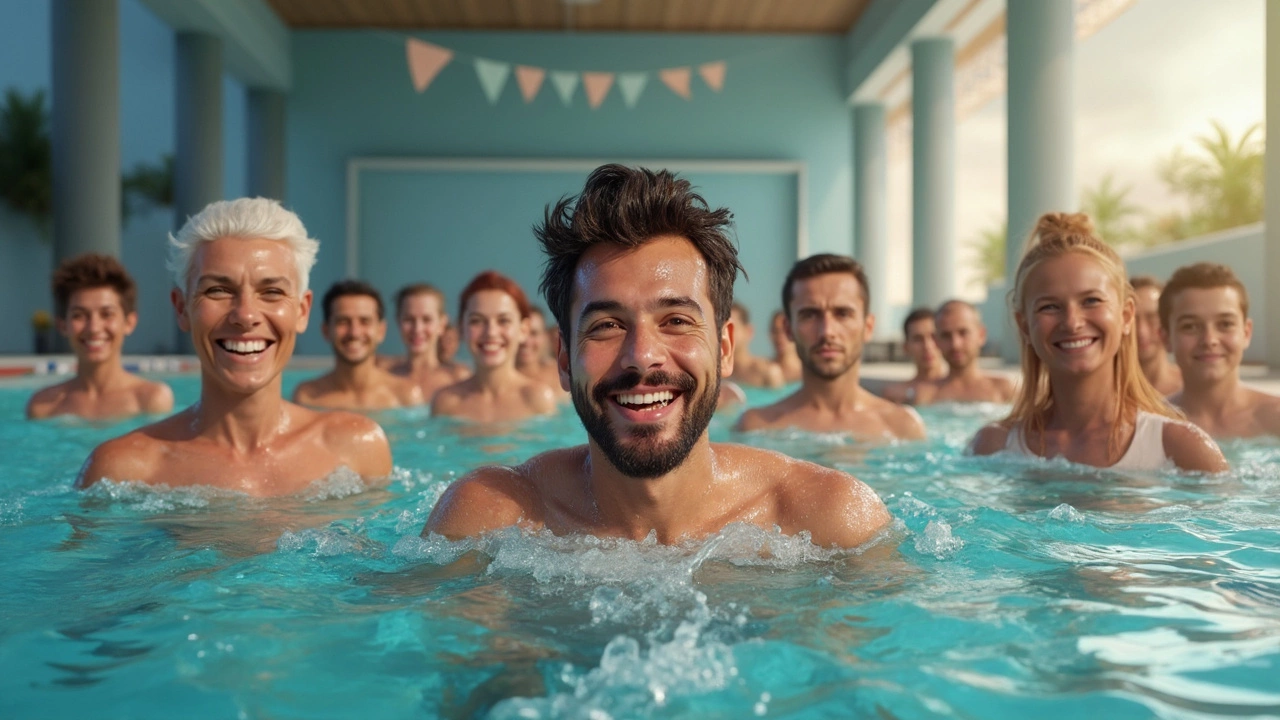Adult Swimming Tips: Simple Steps to Swim Better at Any Age
Feel nervous about getting back in the pool? You’re not alone. Whether you’re a beginner or returning after years, a few clear habits can turn awkward splashes into smooth strokes. Below are the most useful tips you can start using today.
Master the Basics: Breathing and Body Position
Breathing is the single biggest hurdle for adult swimmers. Aim for a relaxed exhale through your nose or mouth while your face is in the water, then turn your head to the side for a quick inhale. Keep the turn small – just enough to clear the water – and bring your mouth back down as soon as you finish breathing.
Good body position follows the same logic. Imagine a straight line from head to heels. Keep your hips near the surface; if you feel yourself sinking, engage your core and glutes to lift. A flat, horizontal line reduces drag and makes every kick count.
Effective Drills You Can Do Anywhere
Kickboard kick: Hold a kickboard, extend your arms, and focus on a steady, small kick from the hips. Do 3 sets of 30 seconds, resting 15 seconds in between. This builds leg strength without overthinking arm movement.
One‑arm freestyle: Swim with one arm while the other stays at your side. Switch arms each lap. This isolates each side, improves balance, and highlights any uneven pull.
Side‑lying drill: Lie on your side, one arm extended forward, the other along your body. Rotate gently with each breath. This helps you find a comfortable breathing angle and keeps your hips high.
Do these drills 2–3 times a week, mixing them into a regular swim session. Consistency beats intensity for adult learners.
Besides drills, watch your gear. A well‑fitting swim cap reduces resistance, and goggles that don’t fog let you focus on technique instead of wiping water. If you’re just starting, a basic silicone goggle and a silicone cap are fine – no need for pricey tech yet.
Safety matters, too. Always warm up with 5 minutes of easy swimming or arm circles on the deck. If you’re swimming in open water, check the conditions, swim with a buddy, and wear a bright swim buoy.
Finally, set a realistic training plan. Aim for three sessions per week, each lasting 30–45 minutes. Start with 200 meters of easy swimming, then add 50‑meter intervals of the drills above. As you get comfortable, increase the distance by 10 % each week. This gradual approach prevents burnout and keeps progress steady.
Remember, adult swimming is less about perfection and more about steady improvement. Focus on breathing, keep your body flat, use simple drills, and stay safe. In a few weeks you’ll notice smoother strokes, less fatigue, and more confidence in the water. Dive in and enjoy the process – the pool is yours to master.
